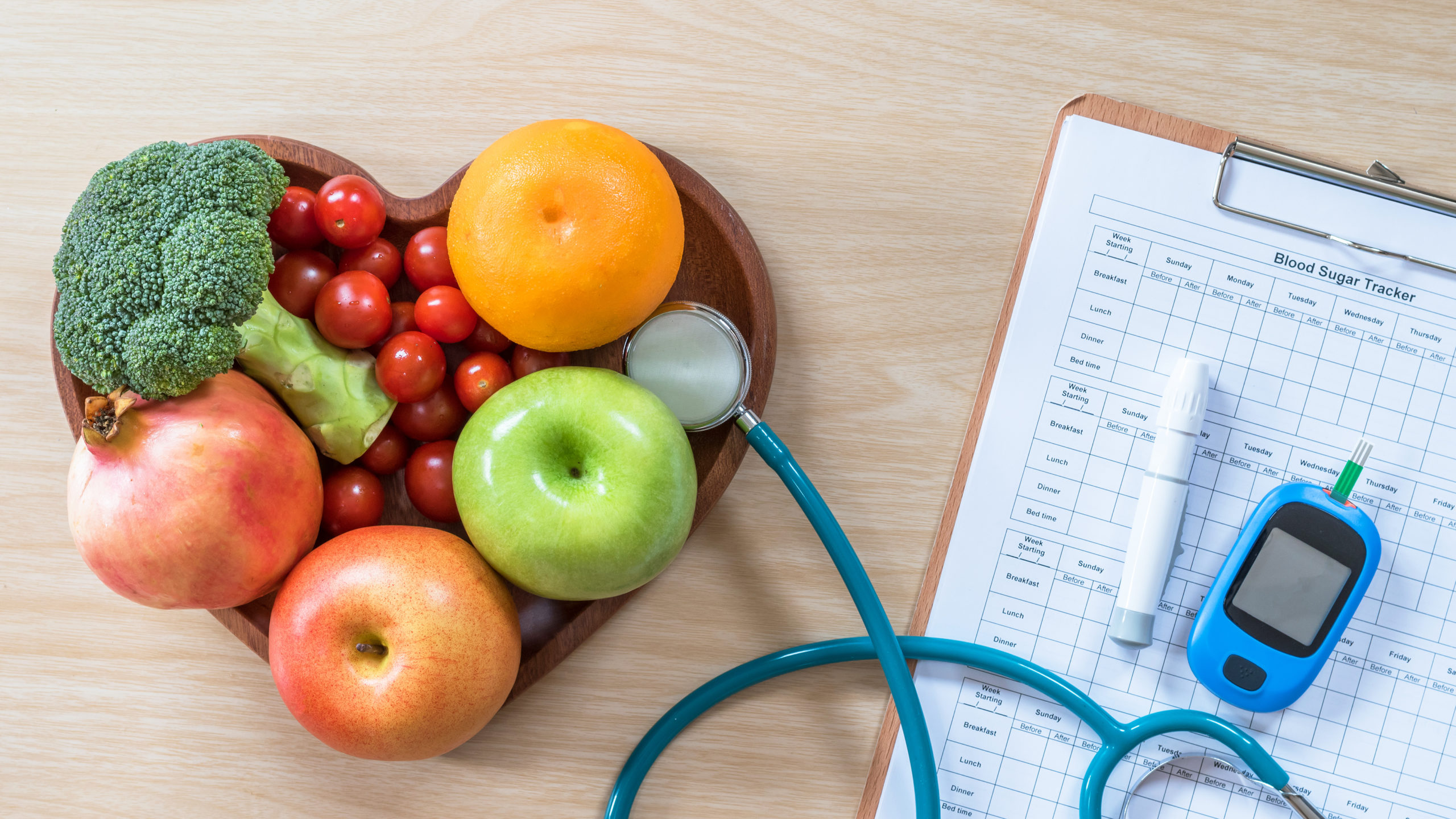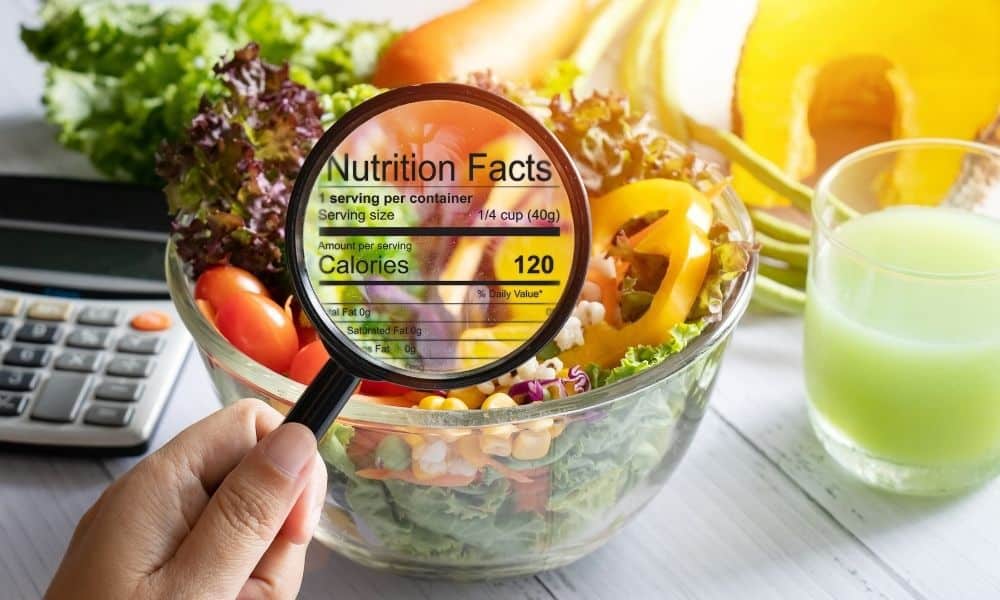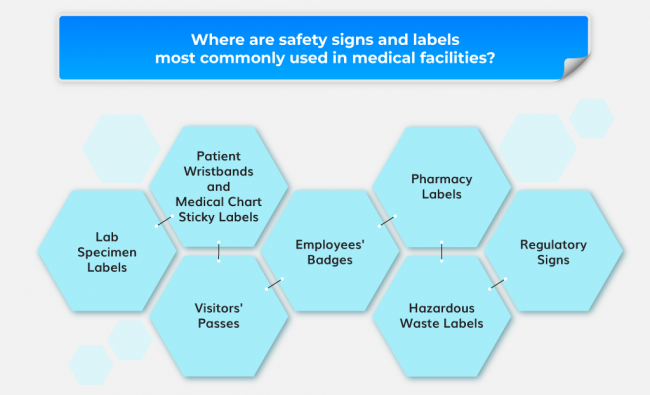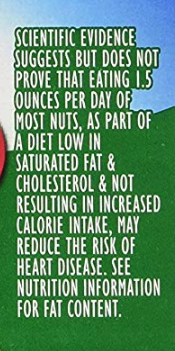42 health claims on labels
Guide to Food Label Health Claims - Stephanie Kay With claims such as "low in calories", "all-natural" and "source of probiotics" plastered on food products at all ends of the spectrum, ranging from water to granola bars, it can be overwhelming to decipher which are valid and which are irrelevant. With more and more people becoming health conscious, it is important to understand ... Health claims | EFSA Nov 15, 2018 · An increasing number of foods sold in the EU bear nutrition and health claims. A nutrition claim states or suggests that a food has beneficial nutritional properties, such as “low fat”, “no added sugar” and “high in fibre”. A health claim is any statement on labels, advertising or other marketing products that health benefits can result from consuming a given food, for …
Health Claims on Food Labels - Consumer Reports Health Claims on Food Labels: What's True, What Isn't A guide to what 'natural,' 'multigrain,' 'free-range,' and more really mean By Sally Wadyka January 07, 2019 R eading the information on food...

Health claims on labels
Qualified Health Claims | FDA Qualified health claims (QHCs) are supported by scientific evidence, but do not meet the more rigorous "significant scientific agreement" standard required for an authorized health claim. To ... What Are Health Claims? And when can use them? There are two types of Health Claims that are important to understand: 1. General Level Health Claims 2. High Level Health Claims General Level Health Claims General Level label claims imply the food will provide a positive health effect on the human body. A health effect can influence in any of the following; - growth and development In Pictures: 29 Foods With "Health Claims" That Are Deceiving … Apr 26, 2013 · Foods With Health Claims: The Surprising Ways That Food Companies Try to Trick You. I casually walked through every aisle of the grocery store and picked out things with labels that could be considered misleading, or otherwise made you think the product is healthy. Things that children or uninformed people might fall for.
Health claims on labels. Nutrition, health and related claims - Food Standards Page last updated April 2021. Introduction. Standard 1.2.7 – Nutrition, health and related claims in the Food Standards Code (the Code) set out requirements for making nutrition content and health claims about food.. Find out more about the Standard and the different types of claims.. The Implementation Subcommittee for Food Regulation (ISFR) has guidance on how to comply … Label Claims for Food & Dietary Supplements | FDA Mar 07, 2022 · Among the claims that can be used on food and dietary supplement labels are three categories of claims that are defined by statute and/or FDA regulations: health claims, nutrient content claims ... Nutrient Content Claim vs Health Claim - LabelCalc An example of an authorized health claim would be, "Adequate dietary calcium and vitamin D may reduce the risk of osteoporosis in later life." Of course, if you are interested in using an "authorized" health claim, I recommend perusing the complete list of the FDA's authorized health claims to see which ones your product is eligible ... Understanding Food Labels | The Nutrition Source | Harvard … The FDA has approved 12 health claims on food labels such as the relationship between calcium and osteoporosis; sodium and hypertension; fiber-containing grains, fruits and vegetables and cancer; and folic acid and neural tube defects. However, just because a food contains a specific nutrient that is associated with a decreased risk of disease ...
How to read food labels | healthdirect Sugar: Sugar is a type of carbohydrate. It is better to choose healthier carbohydrates and to limit foods that are high in added sugars. Fibre: High fibre foods such as wholegrain bread and cereals improve digestion and help you to feel full. Sodium: This tells you how much salt the product contains. Eating too much salt is linked to high blood pressure and can lead to heart disease, … Health claim - Wikipedia A health claim on a food label and in food marketing is a claim by a manufacturer of food products that their food will reduce the risk of developing a disease or condition. For example, it is claimed by the manufacturers of oat cereals that oat bran can reduce cholesterol, which will lower the chances of developing serious heart conditions. Understanding Food Labels and Health Claims - Maricopa No labels can make claims of diagnosis, cures, treatment, or disease prevention. If you find food or drinks that make wild claims of curing or treating a disease or symptom (or making you lose weight or gain muscle), note that it is NOT TRUE. These are not valid or allowed claims on food labels. Test You Knowledge Allergy Warnings Authorized Health Claims That Meet the Significant Scientific Agreement ... Authorized Health Claims That Meet the Significant Scientific Agreement (SSA) Standard Authorized health claims in food labeling are claims that have been reviewed by FDA and are allowed on food...
15 Health Claims on Food Labels That Are Total BS — Sorry! Just look at all the bogus health claims on food labels. According to Statista, There's an especially big market for healthy foods out there. In fact, one 2019 survey found that 53 percent of ... Health Claims - Canada.ca Health claims are also subject to Section 3 of the Food and Drugs Act that prohibits the labelling and advertising of any food to the general public, as a treatment, preventative or cure for any diseases and health conditions listed in Schedule A of the Food and Drugs Act.Therefore, claims about diseases and health conditions listed in Schedule A of the Food and Drugs Act (e.g. … What is health-washing, and what does the label "real food" mean to ... However, these labels can be taken advantage of by marketers who practice "health-washing:" a tactic that conveys a false impression of health for the benefit of bigger profit. Well-intended consumers may purchase a product thinking it is healthier without knowing whether the health claim is actually true. The "real food" label is one ... The Different Types of Health Claim Labels Health claim labels will inform consumers that a food product or ingredient within a food product may reduce the risk of different health conditions or diseases. For health claim labels to pass FDA regulation, scientific evidence that supports these relationships between a product and the reduced risks of diseases must be proven.
Label Claims for Conventional Foods and Dietary Supplements Mar 07, 2022 · Among the claims that can be used on food and dietary supplement labels are three categories of claims that are defined by statute and/or FDA regulations: health claims, nutrient content claims ...
Health claims: what they mean - Canada.ca must have more than 40 Calories if the food is not a vegetable or a fruit. must have a minimum amount of at least one vitamin or mineral. To make a health claim about calcium, vitamin D and regular physical activity, and reduced risk of osteoporosis, the food ... must be high (or very high) in calcium. may also be very high in vitamin D.
› nutritionsource › food-labelUnderstanding Food Labels | The Nutrition Source | Harvard T ... The FDA has approved 12 health claims on food labels such as the relationship between calcium and osteoporosis; sodium and hypertension; fiber-containing grains, fruits and vegetables and cancer; and folic acid and neural tube defects. However, just because a food contains a specific nutrient that is associated with a decreased risk of disease ...
› food-labelling › health-claimsHealth Claims - Canada.ca Health Canada recognizes that the foods we eat can affect our health in different ways. Some food labels contain statements about the beneficial effects of certain foods on a person's health, such as "a healthy diet low in saturated and trans fat may reduce the risk of heart disease".This type of statement is an example of a health claim.
inspection.canada.ca › food-labels › labellingFunction claims - Health claims on food labels - Food labels ... Acceptable function claims are claims about a food or food constituent that clearly state a specific and scientifically supported physiological effect (e.g. promotes regularity) associated with good health or performance. Claims that state a specific effect provide more useful information for the consumer and are less likely to be misleading or ...

Food Labeling: An Introduction to Nutrient Content, Health, and Other Claims - Food and Drug Law ...
Health Claims on Food Labels | Cigna Health Claims on Food Labels Food makers can make health claims about certain nutrients, such as calcium, fiber, and fat, that are found naturally in foods. The health claims must be balanced and based on current, reliable scientific studies. And the claims must be approved by the U.S. Food and Drug Administration (FDA).
FDA Takes Steps to Allow Qualified Health Claims on Labels By Keller and Heckman LLP's Packaging Practice Group The Food and Drug Administration announced March 31, 2004, that a qualified health claim will soon appear on product labels for walnuts and the reduced risk of coronary heart disease. "This qualified health claim is part of the FDA's initiative to provide Americans with better information to help them make healthier dietary choices," the ...
What You Need to Know About Health Claims on Food Labels and Dietary ... In general, health claims are statements made on food product labels or dietary supplements that boast some type of health benefit. This may seem simple, but the FDA doesn't treat every claim the same way. Label claims come in multiple forms: Health claims (which comprise of authorized health claims and qualified health claims)
› industry › labellingNutrition, health and related claims - Food Standards Health claims. You can only base health claims on food-health relationships that have been substantiated according to Standard 1.2.7. All health claims must be supported by scientific evidence to the same degree of certainty, whether they are pre-approved by us or self-substantiated by food businesses. General level health claims
Health Claims on Labels: Can They Be Trusted? | BestFoodFacts.org Health claims on food labels are regulated by the federal government. The claims must be verified by scientific data. The statements are optional, so food may have health benefits even if it doesn't carry a specific label. Label claims are a good starting point to learn about the nutrition of food. About The Experts Marie-Eve Labonte Nutrition
Food labelling and packaging: Nutrition, health claims and ... - GOV.UK Nutrition, health claims and supplement labelling Nutrition labelling You must follow nutrition labelling information rules for all pre-packed products unless both of the following apply: you're a...
› food › food-labeling-nutritionLabel Claims for Food & Dietary Supplements | FDA Mar 07, 2022 · Among the claims that can be used on food and dietary supplement labels are three categories of claims that are defined by statute and/or FDA regulations: health claims, nutrient content claims ...
Food Labels (for Teens) - Nemours KidsHealth Some food labels also state which country the food came from, whether the food is organic, and certain health claims. In the United States, the Food and Drug Administration (FDA) and the Department of Agriculture (USDA) also regulate any health claims that companies make on their food labels. When a food says “healthy,” "light" ("lite"), or ...
Function claims - Health claims on food labels - Food labels Laxation Claims. The term "laxation" (definition) is accepted as referring to the normal softness and bulking of the stool resulting from such factors as increased undigested residue or bacterial mass, trapping of gases or water retention.. Claims for the promotion of "laxation" or "regularity" are acceptable for foods when a Reasonable Daily Intake of the food contains a minimum of 7 …
› en › topicsHealth claims | EFSA Nov 15, 2018 · A health claim is any statement used on labels, in marketing or in advertising that health benefits can result from consuming a given food or from one of its components such as vitamins and minerals, fibre, and ‘probiotic’ bacteria.











Post a Comment for "42 health claims on labels"